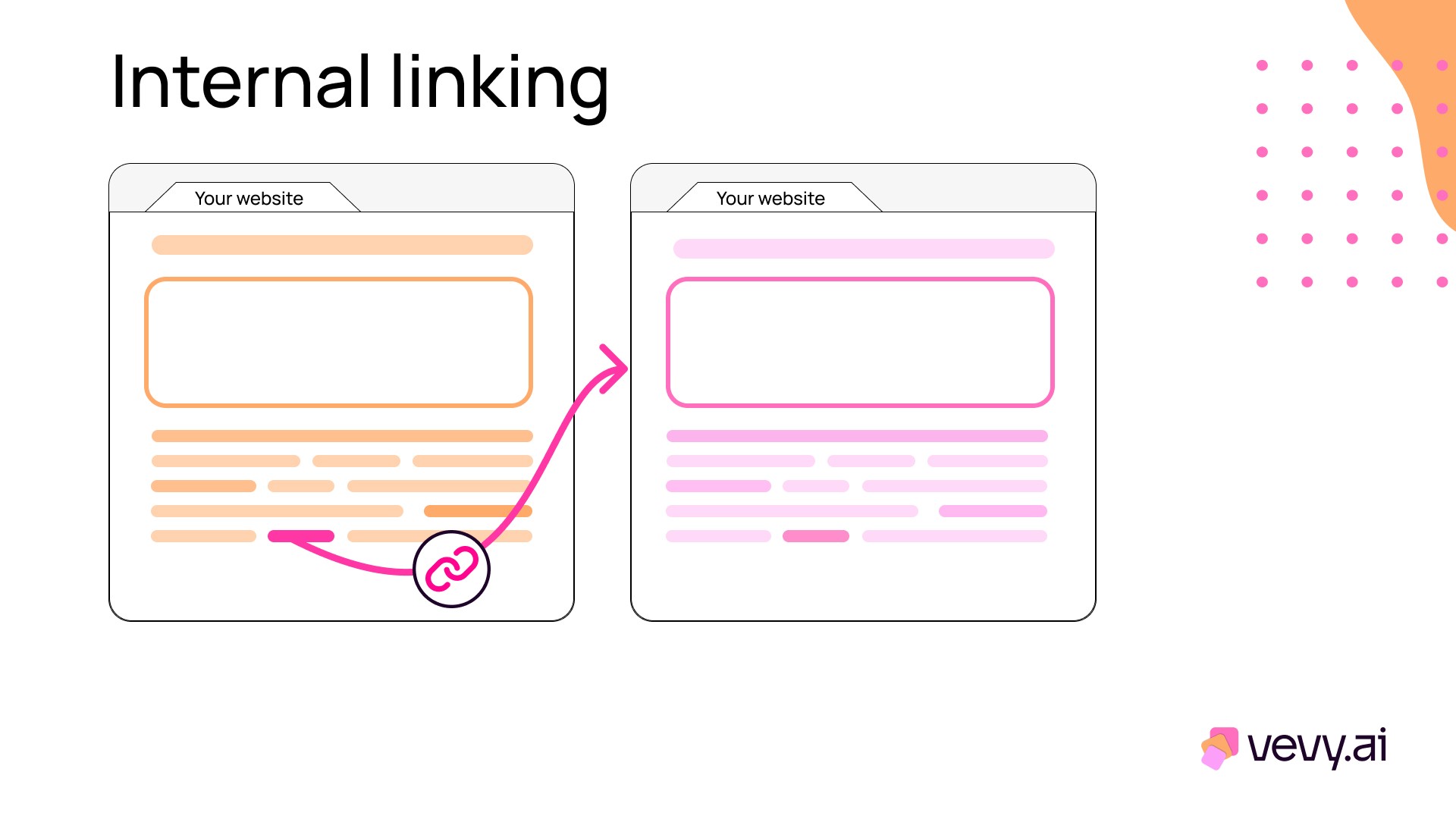Internal linking

Internal linking refers to the practice of linking one page of your website to another page on the same site. These links are essential for various reasons and play a critical role in SEO.
Improves site navigation: Internal links guide users through your site. They help visitors easily find related content and move between pages.
Distributes link value: Internal links pass authority from one page to another. Search engines value links differently based on where they appear, such as in content or navigation menus.
Helps search engines discover content: Internal links allow search engines to find new pages on your site. They act as a roadmap that guides search engines through your content.
Supports link classification:
Structural links (S-nodes): These are links used for navigation, like menus that appear on multiple pages. They help visitors move around your site and show how your site is organized. For example, the main menu at the top of a website is often considered an S-node.
Content links (C-nodes): These links are found within the content of a page, such as in a blog post. They connect related pages and point to important information on a specific topic. For example, a link inside a paragraph, considered as C-nodes of an article leading to another relevant article.
Isolated links (I-nodes): These are links that don’t belong to a group or a block, like a single link within a paragraph. They usually don’t repeat on other pages and may not be as important as S-nodes or C-nodes.
Creates content hierarchy: Internal links help create a structure that organizes your content. They help search engines understand how your pages relate to each other. Anchor texts in internal links also help search engines understand the topics covered and how they relate to each other and plays a role in automatically tagging and categorizing pages.
Helps with automatic tagging: When pages are linked together, the anchor text (the clickable part of the link) can help search engines categorize and tag pages automatically.
Increases personalization in search results: Search engines use internal links to suggest related content, which can improve user experience and keep visitors on your site longer.